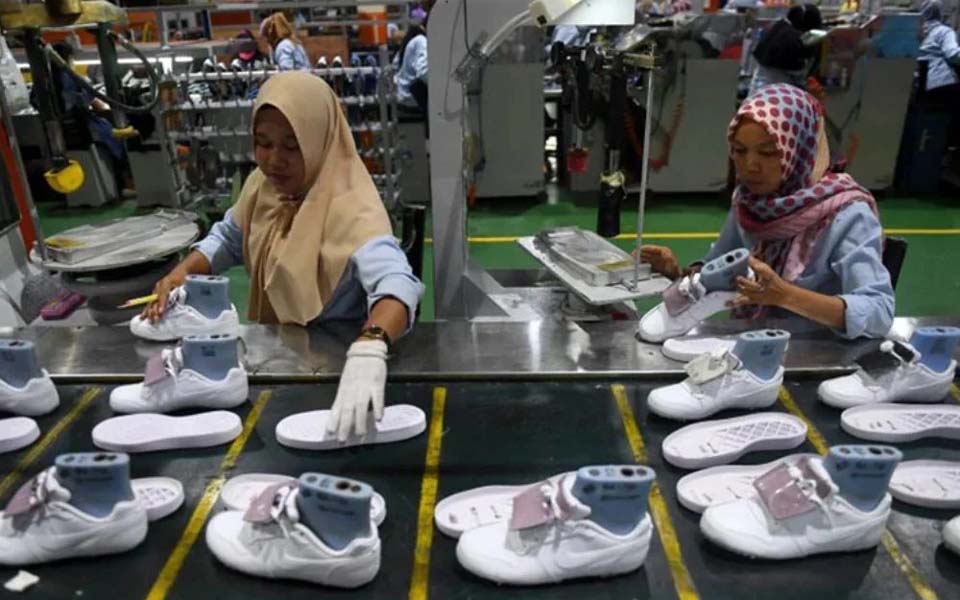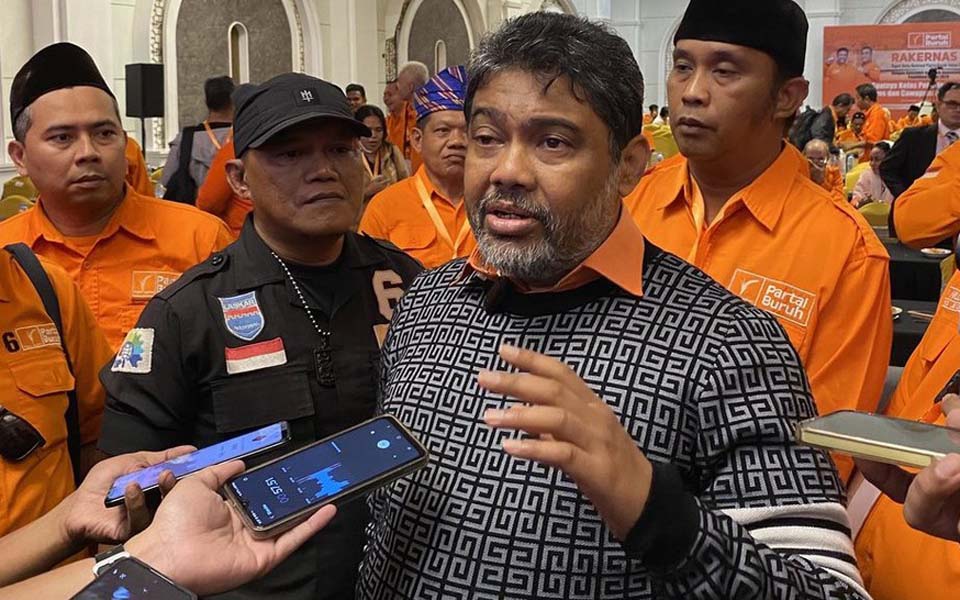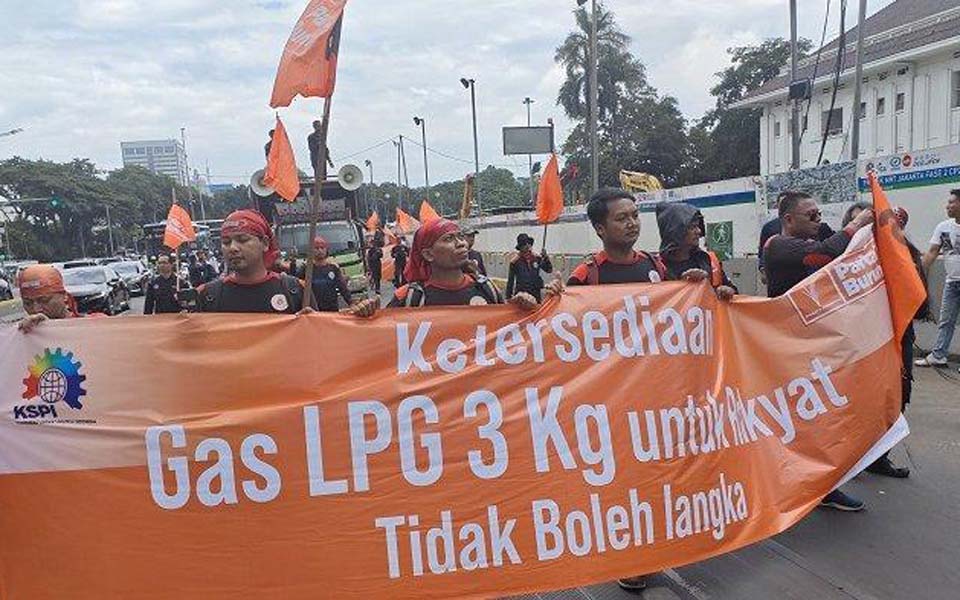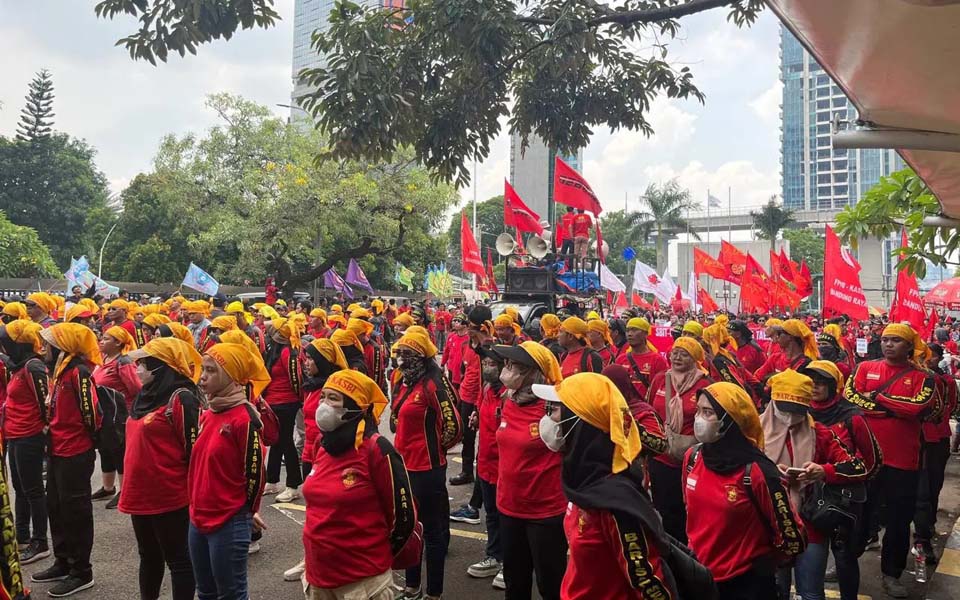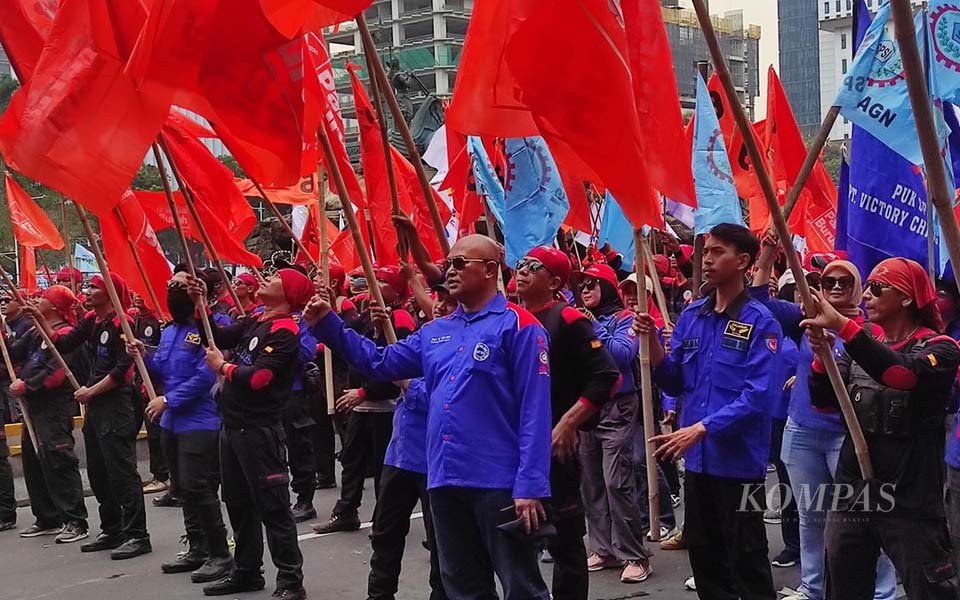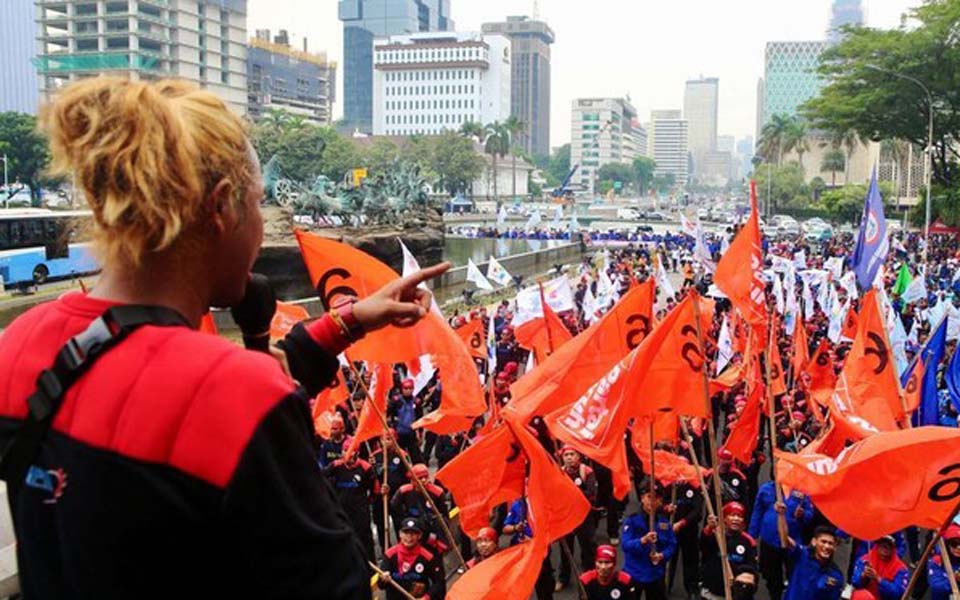Through massive protest actions last year, workers throughout Indonesia united and successfully defeated efforts to enact the proposed draft revisions to Law Number 13/2003 on Labour that they believed failed to side with workers. For the majority of workers however, their struggle is far from over.
Over the last few years workers have not just experienced a progressive decline in prosperity levels, as a consequence of a drop in real wages and purchasing power. They have also felt the progressive strengthening of exploitative anti-worker practices under the regime of neoliberalism, through what is referred to as contract labour systems and outsourcing.
The abolition of contract labour and outsourcing will be one of the central demands of trade unions that make up the Workers Challenge Alliance (ABM) in the massive protest actions that they are planing for International Labour Day on May 1.
They will also be urging the government to immediately reduce prices, improve workers’ wages and bring a reasonable national wage into effect. The ABM has stated that it will mobilise hundreds of thousand of its members to besiege the State Palace on the day.
On the same day, the National Workers Union (SPN), the Indonesian Metalworkers Trade Union (SPMI), the All Indonesia Workers Union (SPSI), the Federation of Metal, Electronic and Machinery Trade Unions (FSPLEM) and a number of other trade unions also plan to hold a May Day Fiesta the Bung Karno Sports Stadium in Senayan. President Susilo Bambang Yudhoyono, People’s Consultative Assembly Speaker Hidayat Nur Wahid and House of Representatives Speaker Agung Laksono are planning to attend the event.
Over the last few years, contract labour systems and outsourcing have become a global phenomena driven by demands for labour market flexibility by businesspeople in order to remain competitive in the global market. This has resulted in looser labour relations between employers and workers based contract systems and has done away with workers’ normative rights.
According to Law Number 13/2003, labour contract systems and outsourcing are regulated under their own articles. Moreover under the draft revision of the law, contract labour and outsourcing would no longer be limited to non-essential jobs, but to all types of work and the contract periods can be extended up to five years.
Workers and employees consider this as a form of hidden colonialism or slavery by the owners of capital who want Indonesia to remain a cheap labour market.
The existence of contract labour and outsourcing has further weakened the bargaining position of workers and employees because there is no job security, wage certainty, social security, healthcare guarantees, severance pay or other welfare allowances if they are dismissed.
So they see this as the state discharging its responsibility to protect workers. The steady narrowing of employment opportunities means that workers are not faced with many choices, other than to accept the existing situation. Many are forced to allow themselves to be turned into objects of human trafficking by employment brokers and unscrupulous individuals within companies that treat them simply as hired or freelance labourers.
Aside from the issues of severance pay and wages, outsourcing and labour contract system through work contracts for a specific period (PKWT) represent two of the four most crucial and difficult issues in the revision of the labour law, which has still not been agreed to by workers, employers and the government.
The revisions to the labour law itself have been carried out under pressure from both employers as well as workers. Employees believe that there are a number of problematic articles that are unfavourable to the business environment, while workers believe that other articles fail to side with their interests.
The government itself considers these revisions to be urgent because without them, they cannot attract investment and it will be difficult to stimulate the real sector, so efforts to create job opportunities and reduce poverty will also founder.
No point of agreement however has yet been reached. Because it has encountered a dead end, the government finally decided to delay the revision process until after the 2009 general elections. On the one had, this saves the current administration from the responsibility of having to complete the revisions to the law, but on the other hand it creates uncertainty for both workers, businesspeople, the investment climate and the economy.
Reducing prices
The other thing workers are demanding is that the government reduce prices, improve wages and bring a reasonable national wage into effect.
With the inflation rate on food for February standing at 10.4 percent (year on year) and inflation for March already reaching 8.2 percent, the jump in the price of many basic commodities has rapidly eaten into purchasing power. This was confirmed by a recent Purchasing Power and Employee Perception Index Survey released by the All Indonesia Workers Organisation (OPSI).
In practical terms, workers’ real wages have stagnated since 2004. Not just real wages, but for many sectors nominal wages have also declined. Data on economic indicators from the National Statistics Agency (BPS) shows that a decline in real wages has occurred in almost all the principle sectors that employ large numbers of low-skilled workers. On average, workers’ real wages experienced a decline of as much as 10.6 percent between August 2006 and August 2007.
This continued decline in workers’ welfare also more or less explains the phenomena of labour struggle that yet to shift from issue of welfare improvements and the fulfilment of their normative rights. Moreover for many workers and jobseekers, the issue is no longer just one of welfare, but simply of how they can enter and survive (job security) in the job market. (tat)
[Translated by James Balowski.]







